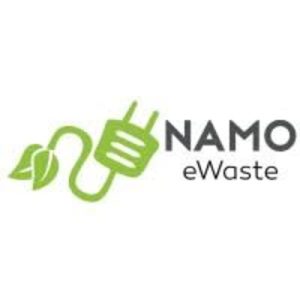
Namo eWaste Management IPO
ClosedAlready have an account? Apply now
Namo eWaste Management IPO details
Schedule of Namo eWaste Management
| Issue open date | 04 Sep 2024 |
| Issue close date | 06 Sep 2024 |
| UPI mandate deadline | 06 Sep 2024 (5 PM) |
| Allotment finalization | 09 Sep 2024 |
| Refund initiation | 10 Sep 2024 |
| Share credit | 10 Sep 2024 |
| Listing date | 11 Sep 2024 |
| Mandate end date | 21 Sep 2024 |
| Lock-in end date for anchor investors (50%) | 09 Oct 2024 |
| Lock-in end date for anchor investors (remaining) | 09 Dec 2024 |
Note: The schedule is tentative. The anchor lock-in period ends 30 days after the actual allotment date for 50% of the shares and 90 days after for the remaining portion. The allotment status can be checked on the registrar's website and the exchange website.
About Namo eWaste Management
Founded in 2014, the company provides comprehensive e-waste collection, disposal, and recycling services, including electrical and electronic equipment (EEE) such as air conditioners, refrigerators, laptops, phones, washing machines, and fans. The company recycles and refurbishes electronics, helping clients meet Extended Producer Responsibility (EPR) targets under the E-waste Management Rules 2022. It operates facilities in Faridabad and Palwal, Haryana, and is certified to ISO 9001:2015, ISO 14001:2015, ISO 27001:2022, and ISO 45001:2018 standards.
Financials of Namo eWaste Management
Issue size
| Funds Raised in the IPO | Amount |
| Overall | ₹51.20 crores |
| Fresh Issue | ₹51.20 crores |
| Offer for sale | – |
Utilisation of proceeds
| Purpose | INR crores (%) |
| Working capital requirements | 22.00 (42.97%) |
| Capital expenditure | 11.20 (21.88%) |
| Others | 5.64 (10.15%) |
| General corporate purposes | 12.8 (25%) |
Strengths
- Dedicated service provider: The company specializes in collecting, managing, and recycling e-waste through in-house factory units.
- Stringent quality control: Ensures standardized product quality through a rigorous quality control mechanism.
- Diversified revenue: The company generates income from multiple geographies.
Risks
- Dependence on key suppliers: Reliance on a few suppliers with fixed pricing agreements may result in higher procurement costs during market fluctuations, impacting margins.
- Geographical concentration: The company’s operations and revenue are heavily centered in Haryana, exposing it to risks from local political, economic, and environmental changes.
- Competitive challenges: Expanding into new regions may be challenging for Namoe Waste Management due to strong competition from established local players.
- Fluctuating E-Waste supply: The company’s operations depend on a stable e-waste supply, and any disruptions or price increases could impact costs and profitability.